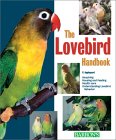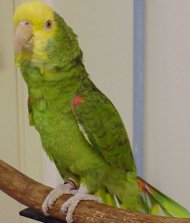Aspergillus – Are Peanuts Safe for Parrots
Aspergillosis is a very difficult-to-treat disease that can affect parrots and other birds. Aspergillus species are a type of fungus found in the environment. Generally, birds with other underlying health problems are most susceptible to infection. However, certain foods or elements in the environment can increase the risk to even healthy birds.
Unshelled peanuts: If you want to give your parrot unshelled peanuts, it is best to buy human-grade quality. The unshelled peanuts in avian seed mixes are often damaged and do not necessarily meet the standards required for human consumption. Poor quality unshelled peanuts are a known carrier of Aspergillus species.
Plant soil: Aspergillus species are endemic in the environment, particularly in damp soil. Do not let your parrot dig in the garden while you plant flowers. Avoid contact with houseplants (this is true anyway, because often people don’t realize a particular plant is itself toxic to birds).
Damp, dirty cage conditions: a damp and dirty cage is prime breeding ground for not only this deadly fungus, but of many dangerous pathogens such as harmful bacteria. If a wooden nestbox becomes smelly and moldy, this creates a very unhealthy environment for your birds. If you are losing babies in the nest, this can sometimes be the cause. Babies have underdeveloped immune systems and are more susceptible to opportunistic pathogens that might not affect their parents, although parents are more susceptible during the stressful time of breeding and brooding young.
Inappropriate or excessive use of antibiotics: You often hear about how women who have undergone antibiotic treatments for an infection will then develop yeast infections. Antibiotics can undermine your body’s ability to ward off fungal and related opportunistic pathogens. Be extra careful when your bird has to undergo antibiotic therapy. Do not buy over-the-counter antibiotics and self-treat your birds; these medications are largely ineffective and can cause you to delay appropriate and timely treatment of infections.
Opportunity strikes: As you can see, many of the risk factors have to do with opportunity. This is primarily an opportunistic pathogen. To put it in the simplist terms, Aspergillus species are all around us, but it is when certain other conditions are present that it is most likely to be able to infect your pet bird.
How Does Aspergillus Affect Birds?
Sometimes the signs are subtle, but it often affects the respiratory system. If your amazon normally has a nice, clear voice, and it now seems raspy or not quite right, this can be a sign of respiratory problems. Decrease in speech and vocalizations should also be a warning sign. Difficulty breathing while simply sitting on the perch is a very serious sign and any bird exhibiting tail bobbing or wheezing should be seen by an avian veterinarian immediately. If you see any changes in vitality, behavior, voice, or sleeping/eating behavior, immediately take your bird to an avian vet for examination. Although Aspergillus cannot be spread from bird-to-bird, if one bird is infected it means your environment could be the culprit and other birds could become sick.
Treatment
My avian vet gets a very sad look on her face when you bring up Aspergillus. She can tell you that it is a very intractable disease to treat, and has high treatment failures. Lesions develop that can cause permanent, life-threatening damage. Because of this, prevention is the best medicine. Any bird with an underlying illness should be vigorously protected from conditions that could allow for the fungus to be present. Birds with immune deficiencies should not be fed unshelled peanuts or dried corn because they have a history of containing these toxins when stored improperly by the manufacturer or buyer.










